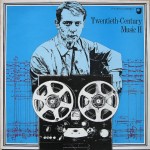In 1984, after being told that a social science course showed a Marxist bias and offered a critique of monetarism, the Secretary of State for Education, Keith Joseph read ‘all the relevant teaching materials’. He then visited the Walton Hall campus in July 1985 and ‘seemed greatly impressed’ (according to his biographers, Andrew Denham and Mark Garnett, Keith Joseph: A Life, Acumen Press, 2001, p. 387. See also Sunday Times 1 July 1984; The Times 13 September 1984).
Interviewed in 1995 (for Dalgleish, Tim, (ed.) Lifting it off the page. An oral portrait of OU people, Open University, 1995, pp. 43-44) Anastasios Christodoulou, the University Secretary, 1968-1980, recalled that Keith Joseph ‘didn’t like the OU at all ─ it was politically motivated, ideologically unsound and its standards supect ─ and I’m almost quoting.’ He also remarked that ‘Arnold Kettle, the Professor of Literature was dead keen on the nineteenth century novel. He was a Marxist, with Marxist interpretations of the novels.’
In the 1990s the Daily Mail columnist Melanie Phillips expressed her concerns about bias. She described Open University course books for a post-graduate teaching qualification as:
‘not so much educational texts as ideological tracts, characterised by an emphasis on teaching “correct” attitudes to race, sex and class and an overt hostility to the Tory government and the new Right… Under the guise of an educational imprint the Open University has to some extent been reduced to pumping out crude ideological propaganda, hijacking the curriculum to “correct” faulty thinking and brazenly enlisting the children in the classroom in the political struggle against the government.’
In case readers do not recognise these texts from the description (found in Melanie Phillips, All must have prizes, Little, Brown and Co,1996 pp. 42-43) the books to which she was referring are:
Pollard, Andrew and Bourne, Jill, (eds.) Teaching and Learning in the Primary School, Routledge/Open University, 1994
Brindley, Susan, (ed.) Teaching English, Routledge/Open University, 1994
Slinger, Michelle, (ed.) Teaching History, Routledge/Open University, 1994
Melanie Phillips went on (p.80) to claim that Stierer, Barry and Maybin, Janet, Language, Literacy and Learning in Educational Practice, Multilingual Matters/Open University, 1994 had a ‘hidden agenda’ was a ‘highly politicised book’ and included ‘a stream of opinionated and highly questionable assertions’.


